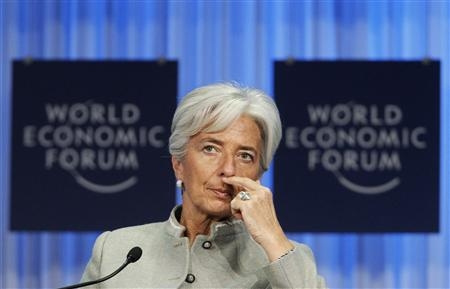International Monetary Fund Under Pressure to Follow Sanctions
Iran's Membership or non-membership won't make any difference

Farhad Khorrami: The International Monetary Fund is one of the two international financial institutions connected to the United Nations, which began its work on the 25th of June 1946 after the Second World War. The IMF was created with the intention of aiding countries that have a deficit in the balance of foreign payments, so much so that it hurts their economy and affects their economic growth, inflation rate, and unemployment rate. This means that the IMF would give loans to these countries so that they could manage their foreign payments, and then these countries would have to pay back these loans over a long period of time.
ID: What is the history of Iran's membership to the IMF?
FK: Iran has been a member of this institute from the start, and it currently has a quota of more than two billion dollars, the amount of which has neither decreased nor increased in the past 28 years.
ID: As an international institution, does the IMF have the right to suspend Iran's membership upon the request of this anti-Iran American institute?
FK: This institute has written a letter to Christine Lagarde, the managing director of the IMF, requesting the closure of Iran's account at the IMF and asking the body to sanction Iran. In her reply, Lagarde said that there has never been any history of the IMF sanctioning a member country, while mentioning that the managing director does not have the power to make such a decision, rather, only the board of governors can decide on such an issue. Therefore, this request has been rejected, to which Mark Wallace replied that the IMF can make such a decision, as it did with the sanctioning of Iran's Central Bank. As a result, there hasn't been any sanction yet, and they are still reluctant about making such a decision.
ID: If there are such sanctions, what effect will they have on Iran?
FK: I believe that such a decision cannot be made, and even if it is, such sanctions will not have much of an effect on Iran's situation. This is because Iran has not requested money from the IMF in a very long time and it has good credit with regard to foreign payments, and has no deficit. Therefore, such a decision will not harm Iran and it will be more of a symbolic gesture.
ID: From the start of economic sanctions on Iran until now, do you think that Iran has passed the period of crisis or have sanctions been intensified?
FK: US president Barack Obama issued an executive order yesterday which says that even those who have business dealings with Iran through secondary intermediaries will be stopped and should be arrested and convicted. But it should be said from Iran's perspective that Iranians have a way of evading sanctions. In response to your question, I can say that they have made the situation worse for Iran, meaning that the cost of international transactions has increased for our country, and the use of secondary and tertiary intermediaries and the high prices of sanctioned goods are such that they are sold to Iran at prices many times higher than usual.
ID: Can we therefore say that Iran's domestic inflation rate is also a result of this intensification of sanctions?
FK: Yes, these sanctions can be considered as a factor behind the country's domestic inflation rate.
ID: What economic solutions are there to escape this situation?
FK: There are no solutions, and the only thing that can be done in this situation is to tolerate it. In other words, as long as Iran wants a nuclear industry, it should tolerate these sanctions and pass through this phase by going around them. But the idea of a decrease in inflation rates soon is impossible, except if sanctions against Iran are suspended. But there are also other factors that influence inflation, such as banking and budget policies.

